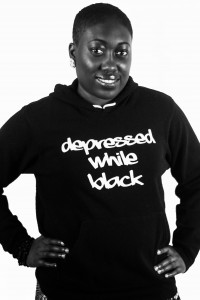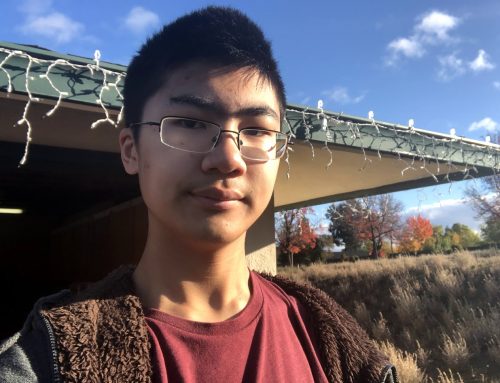I was raised to believe slaves were the only black people who had the right to be depressed. So when I stayed in my bedroom for days at a time, silent and suicidal, my family’s encouragement was that “things could be worse.” If my ancestors survived slavery with no mental health treatment, then I certainly could survive unemployment with no mental health treatment.
My family’s words made me sink deeper in guilt that I was not a slave, yet after 2 master’s degrees, I managed to be poorer than the generations before me. My great grandparents owned a farm, and sent my grandma to boarding school. I could barely afford a Wendy’s 4 for $4 meal after a Ivy League education. Hearing “things could be worse” only induced shame.
Being depressed while black means being seen as too strong to be like “those depressed white people” but too privileged to have the right to be depressed. Your pain is not validated, it’s compared.
I had no language for depression until a therapist visited my church in 2012 after my first full year of unemployment. She listed depression symptoms like excessive crying, lethargy, isolation, and irritability. That was the beginning of seeing myself not in the superhuman myth of my ancestors, but in the very real mental anguish of black communities.
In the four years since I realized I was depressed, I’ve had three therapists, five antidepressants, one suicide attempt, one close call, and a hospitalization. My concept of blackness has expanded with each peak and valley of my depression journey. Even after starting my book, Depressed While Black, and it’s online community, there are times when I still feel that I’m “not allowed” to get help. In those moments, it’s not my inexhaustible black strength that keeps me going. It’s my friends who choose life even when I can’t. It’s the low income mental health services that treats me like a human being. It’s the Twitter convos that remind me I’m not alone.
Depression and blackness are not mutually exclusive. Depression deepens blackness, and shows the contours of our culture that are often hidden from view. With the help of my black friends, I’m learning, flawed and slowly, that in my pursuit of employment, mental health must come first. I can no longer crumble mentally while my work hours build up. I’ve had to realize the very lesson that was denied to my ancestors: that my worth is more than my labor.
 Imade Nibokun is a Columbia Non-Fiction MFA graduate who turned her Depressed While Black thesis into an in-progress book and online platform that shares mental health stories from an African-American lens. She writes about depression at the intersection of race and religion. Imade is also a freelance writer with published work in LA Weekly, VICE, Atlanta Journal Constitution, and WNYC.
Imade Nibokun is a Columbia Non-Fiction MFA graduate who turned her Depressed While Black thesis into an in-progress book and online platform that shares mental health stories from an African-American lens. She writes about depression at the intersection of race and religion. Imade is also a freelance writer with published work in LA Weekly, VICE, Atlanta Journal Constitution, and WNYC.





I’ve enjoyed following you on Twitter for a while, but I’d never read your story until now. I can identify with it so much. I’m glad you’re here and glad you’re working hard to take care of yourself. Thanks for all you have done and are doing. Peace.